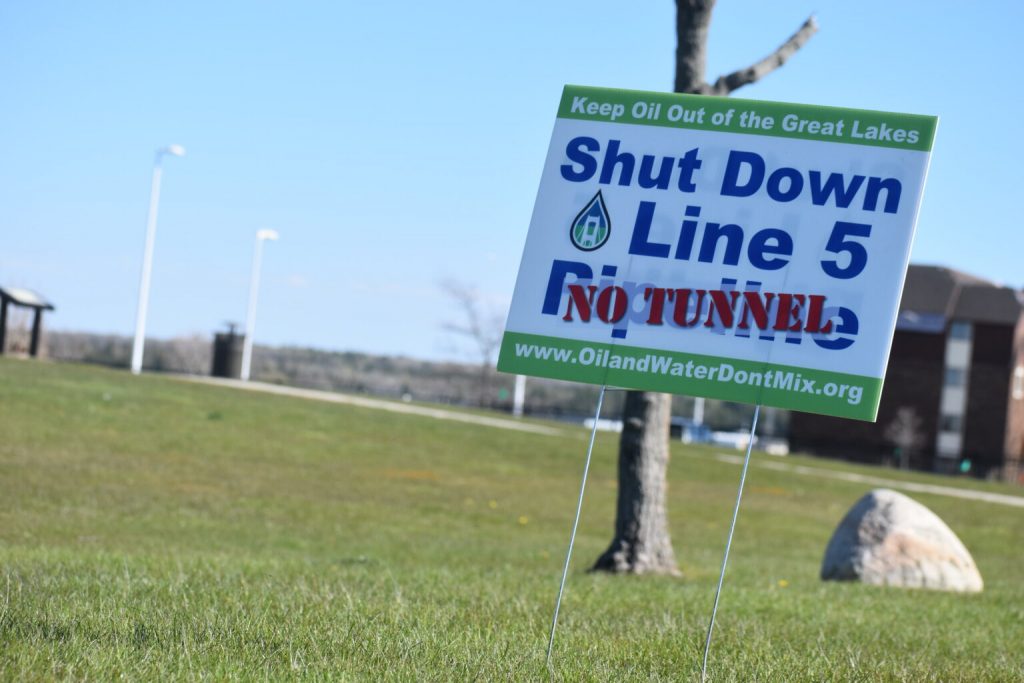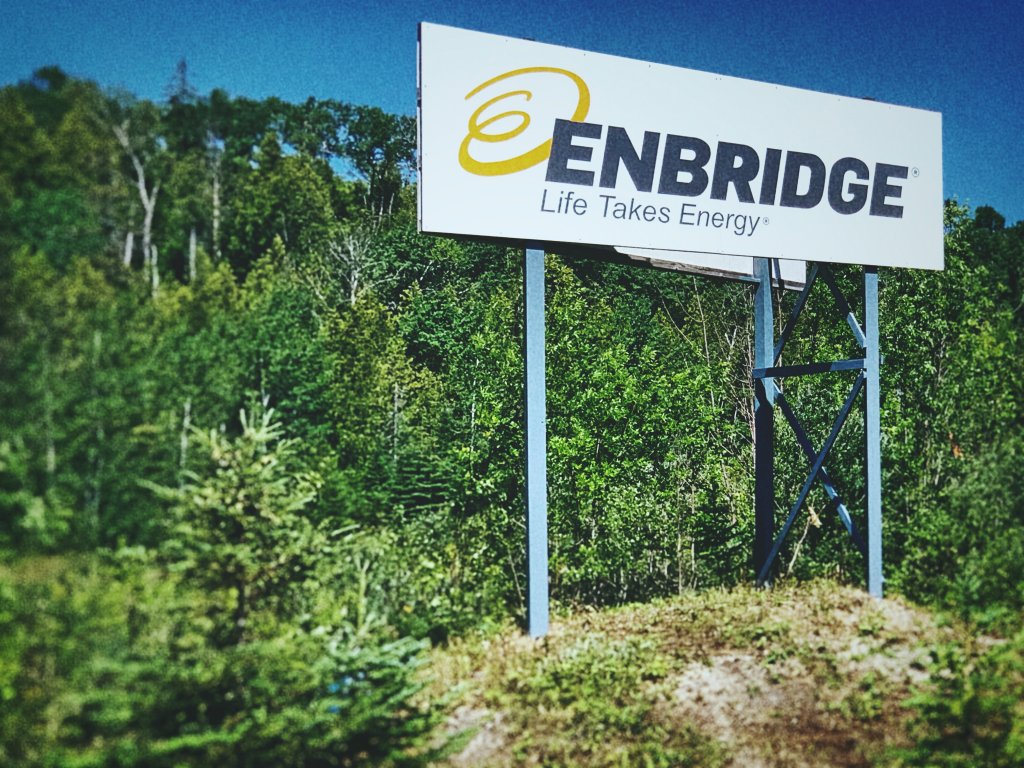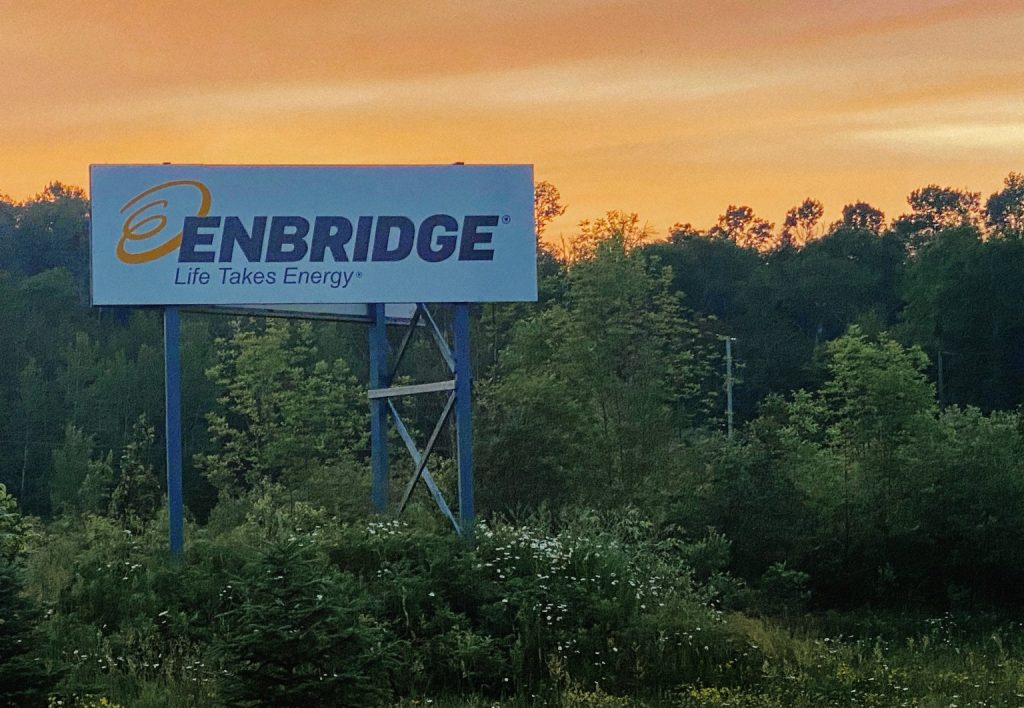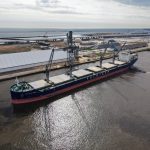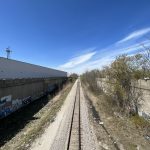New Legal Actions Oppose Enbridge Oil Pipeline
Bad River Band and state environmental groups challenge DNR permits.
“The land does not belong to us, it is borrowed by us from our children’s children” said Robert Blanchard, chairman of the Bad River Band of Lake Superior Chippewa. “We harvest our wild rice from the waters, we hunt from the land, fish from the lake, streams, and rivers to feed our families and gather the medicines to heal our relatives.”
Last Thursday, Midwest Environmental Advocates, 350 Wisconsin, the Sierra Club of Wisconsin and the League of Women Voters of Wisconsin filed a petition for a contested case hearing with the DNR, challenging DNR permitting for Line 5. Shortly after filing the challenge, Midwest Environmental Advocates received a report of a 69,000-gallon oil spill in Jefferson County. According to an accident report shared with Wisconsin Examiner, the spill originated from Enbridge’s Line 6 pipeline. Some 1,650 barrels of crude oil are estimated to have leaked from the pipeline, with 42 gallons to a barrel. When plugged into Google Maps, GPS data in the accident report point to a roadway running through a grassy, wooded area. The map shows that the spill occurred near a waterway that flows into Lake Ripley, not far from a group of nature preserves and campgrounds. Although the pipeline segment had a leak detection system, the accident report states that this didn’t alert anyone to the leak, which was first noticed on Nov. 11 by an Enbridge technician.
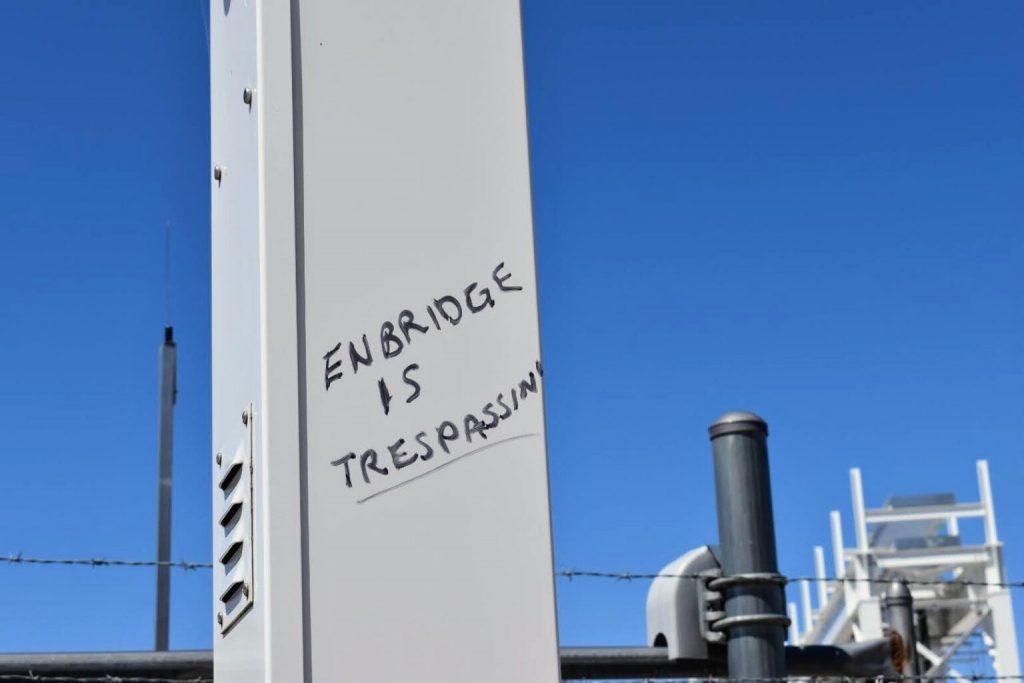
Anti-Line 5 graffiti at Enbridge’s pumping station in Mackinaw City, Mich., May 12, 2021. (Laina G. Stebbins | Michigan Advance)
Tony Wilkin Gibart, executive director of Midwest Environmental Advocates, said in a statement that the Line 6 spill highlights the dangers of Line 5. “Consider that in the very same week that DNR issued permits for Line 5 based on its conclusion that the risk for a spill would be ‘low,’ DNR was investigating a significant oil leak on another Enbridge pipeline in Wisconsin,” said Gibart. “DNR’s reasoning for approving Line 5 defies common sense.”
In November, the DNR decided to issue wetland and waterway permits to Enbridge as a step towards moving the pipeline off the Bad River reservation. The DNR highlighted that the wetland permits would include over 200 conditions which Enbridge would need to honor, and which would keep the company in compliance with Wisconsin’s wetland and waterway standards. Both the DNR and the U.S. Army Corps of Engineers would need to approve the permits before construction of the reroute could begin.
The Band is represented by EarthJustice in a lawsuit filed against the DNR which, like the petition filed last week by the environmental groups, accuses the state agency of producing an inadequate final Environmental Impact Statement on the reroute which violates the Wisconsin Environmental Protection Act.
Blanchard highlighted his tribe’s reliance on wild rice fields growing along the Bad River and Lake Superior, as well as natural medicines, wild game, and the land itself which are crucial to the Bad River Band’s cultural practices and way of life. Every year the tribe holds an annual wild rice harvest, and Bad River Band members hunt and gather from the land all year.
“If something was to happen during that time, or when that pipeline is in place, you know, it’s really going to affect a lot of things that we do here, and the way that we do things here on the reservation as far as our way of life,” Blanchard warned.
Currently the Line 5 pipeline crosses the Bad River inside the boundaries of the reservation. If the reroute goes through, Enbridge would construct 41 miles of new pipeline to cross the river outside of reservation land. The reroute would still place the natural resources the tribe relies on in danger if an oil spill or leak were to occur.
Stefanie Tsosie, senior staff attorney at Earthjustice, also warned that constructing new pipeline damages natural formations and resources which are often irreplaceable. “Once construction starts they can’t undo the damage,” Tsosie said in a statement. “Enbridge has a terrible track record for pipeline construction and operation. And this place — this watershed and this territory — is not another place they can just plow through.”
Opponents to the pipeline point to a history of ecological disasters due to spillage from Enbridge pipelines. In 2010, millions of gallons of crude oil contaminated the Kalamazoo River, creating a crisis which took years to address. Over the past 50 years, Enbridge’s Line 5 pipeline has spilled over 1 million gallons in dozens of different incidents.
Today, an area known as the “meander” is also creating concern for the Bad River Band. “The river is changing course, and it does that throughout the way it runs,” said Blanchard. At the meander where the pipeline crosses, he added, “If we have high water events, flooding, harsh winter with a lot of ice build up, and all that breaks loose in the spring, then we get this high water that very well could take that pipeline out, and cause a spill.”
The tribe is monitoring the situation regularly, but this does little to ease their anxieties. The meander is “quite difficult to get to,” said Blanchard, and it’s also just one area of concern along the pipeline’s route. “A few years back, we had an exposed pipeline coming down one of the sidehills up there,” said Blanchard. “There was quite a ways where the pipeline was exposed and just kind of hanging in mid-air, which could have been disastrous if it wasn’t found and something done about it.”
In a statement, Korte added, “This push from Canadian oil giant Enbridge is getting national attention because what it’s proposing to do here in Wisconsin is dangerous.”
Ecological concerns loom as new legal actions filed against Enbridge Line 5 was originally published by Wisconsin Examiner.


